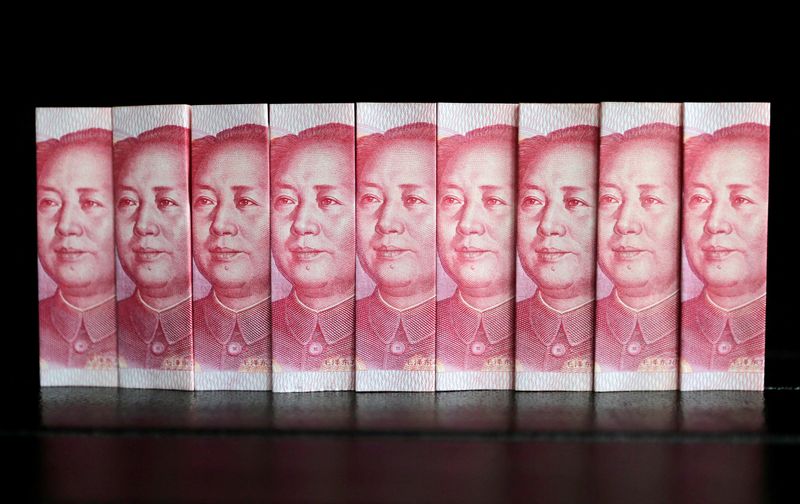SHANGHAI (Reuters) - Chinese money managers are rushing to create funds tracking the newly-launched CSI A50 Index, which analysts say is a better reflection of China's economic landscape and government priorities than the country's stock benchmarks.
China's benchmark blue-chip CSI300 Index slumped 11% in 2023 as the world's second-worst performer after Hong Kong's Hang Seng Index. The Shanghai Composite Index, another closely-watched gauge, also fell sharply.
Compared with CSI300 and SSEC, the CSI A50 Index, consisting of 50 sector leaders, "is more balanced in industry allocation," wrote Yin Zhongli, a researcher at the Chinese Academy of Social Sciences.
"It's imperative for China to construct an authoritative index to better reflect its economic development."
Since CSI A50's launched on Tuesday, at least seven mutual fund companies, including Fullgoal Fund Management Co and E Fund Management have already applied to launch funds tracking the new index, according to regulatory filings.
Compared with current benchmarks, CSI A50 has less weighting in the financial sector, and leans more toward healthcare and new energy companies. Its top constituents include Kweichow Moutai Co, Jiangsu Hengrui Medicine Co and battery maker Contemporary Amperex Technology Co.
The index construction better reflects Beijing's intention to channel more money into innovation, advanced manufacturing and green technology, said Du Zhengzheng, an analyst at China Development Bank Securities.

The Shanghai Stock Exchange, a major shareholder in the index publisher, has vowed to build an index series with Chinese characteristics, and bigger global clout.
In November, the bourse head Cai Jianchun told a forum that indexes are the "baton" of money flows, and index investing must better serve the central government's quest for technological independence.